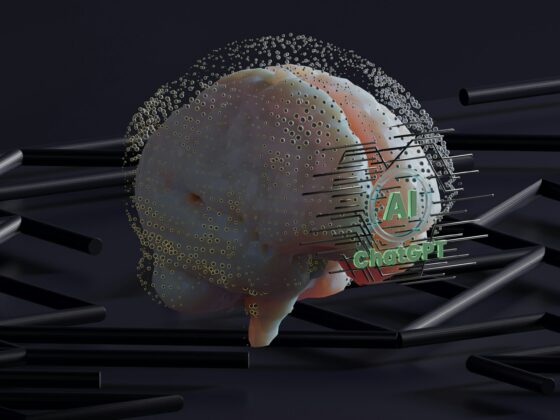Earlier this week, I found myself at
Expedia Group
’s Roman offices, seated across from
Elisa Ragno
for Guess the Guest. The plan, at least on paper, was simple: talk about AI and hospitality. What happened instead was closer to a dérive, a drift across the borderlands where travel, technology, and human complexity leak into each other. Elisa had the admirable courage to ask real questions and the even greater courage to let me answer them without a safety net.
I began with the story she insisted on resurrecting, the one that at this point has drifted into the mythology of my professional origin. She wanted to know how someone who wanted to be a philosopher ends up in hospitality, so I rewound the tape to the late ’90s and returned to that improbable hotel run by Trappist monks (sic!), where I worked night shifts to fund my degree and read Günther Anders while trying to make sense of the strange shame we feel before our own creations. I had imagined silence, books, and long nights of reflection. Instead, I found a PMS stitched together with tape, carbon paper, and a printer that screamed like a wounded bird. To salvage the few hours of thought that remained, I wrote a proto-PMS. It was small, fragile, and almost ridiculous, yet it shifted the entire trajectory of my life, because in that moment I realised that the instant you delegate even a sliver of cognition to a machine, it rewires you, and you spend the rest of your life trying to understand what exactly you surrendered in exchange.
From that point, the conversation gained its own internal weather. Elisa asked what, in my view, is the most important force at play today. I told her speed, but not speed in the corporate sense, speed as an epistemic rupture. We are living inside an exponential spiral that tightens as it accelerates, making prediction not merely difficult but structurally impossible. The digital booking journey, that baroque cathedral of micro-touchpoints we spent 25 years worshipping, is imploding under the gravitational pull of conversational models. If the old web scattered attention, the new interfaces compress it into a single point of contact.
We are living inside an exponential spiral that tightens as it accelerates, making prediction not merely difficult but structurally impossible.
This is why my “AI as UI” is not a slogan but an ontological mutation. Elisa laughed when I said the web is dissolving, but I meant it. The browser is becoming a ghost. And the moment the traveler stops searching, the whole architecture of distribution folds in on itself. Expedia knows this,
Google
knows this,
Booking.com
knows this. Well, guess what? Most hotels have not realised yet.
The digital booking journey, that baroque cathedral of micro-touchpoints we spent 25 years worshipping, is imploding under the gravitational pull of conversational models.
At one point, Elisa asked one of those deceptively simple questions. But what does this do to the traveler? What happens to the human on the other end? It is the question I wish more people would ask. The nature of travel does not crumble under AI, because the impulse to move through the world to move through oneself is older than any technology. What changes is the threshold where the journey emerges. The texture of choice changes. The friction that once forced reflection evaporates. When a model can rephrase your desire with more elegance than you can muster on a Tuesday morning, your inner landscape shifts a little.
The moment the traveler stops searching, the whole architecture of distribution folds in on itself. Expedia knows this, Google knows this, Booking.com knows this. Well, guess what? Most hotels have not realised yet.
And that is where the question of luxury surfaces. I explained my Humans-as-Luxury idea, which Elisa had already stalked online but wanted me to unpack. In a world that wants to remove uncertainty, reduce cognitive strain, and flatten imperfection, the human becomes a rare mineral. Not because humans are better, but because they are gloriously off-key. A fully automated five-star hotel may be smooth as glass, but one uncontrolled human gesture carries a density that no algorithm can simulate. The robot gives the illusion of perfection. The human gives hospitality. And that’s way better.
The impulse to move through the world to move through oneself is older than any technology. What changes is the threshold where the journey emerges.
The conversation then moved to personalisation, and Elisa asked a question that made the audience laugh: why is the industry so obsessed with personalisation when it barely knows its own guests? Exactly. Hotels see only the last mile. OTAs see an intermediate layer. Models see the whole membrane, because we feed them with everything, not only our clean and polished intentions but also our neurotic searches, our drafts of unsent love letters, our quirks, our emotional residue. True personalisation will not be engineered inside a CRM, it will emerge upstream, in the place where desire forms before it becomes intention. And once that happens, undoing it will be as hard as undoing a habit.
The robot gives the illusion of perfection. The human gives hospitality. And that’s way better.
Somewhere between the philosophical flights and the practical realities, we drifted into the politics of hospitality tech. Elisa asked why hotels resist change. Everyone in the room expected me to say ignorance, but resistance is not stupidity. It is self preservation. A PMS is not a tool, it is the geography of labour. Replacing it is not like updating an app, it is like remapping the nervous system of an organism. Hoteliers walk inside a world built on legacy systems that continue existing long after they should have been given a dignified burial. Vendors are prisoners of their own infrastructures, consultants are often complicit through hidden commissions, and the entire ecosystem survives on inertia because the alternative is a structural migraine.
Why is the industry so obsessed with personalisation when it barely knows its own guests?
At this point, Elisa asked a more personal question: What moment changed your trajectory? So I told her the truth, the day I walked away from a company I helped build, selling my shares for one dollar each just to exit a narrative that was no longer mine. The room went silent for a few seconds. Intellectual freedom has a cost, and most of the time the price is paid in solitude, uncertainty, and income. But the alternative is worse. The alternative is self-betrayal.
There were also ridiculous moments, like when I confessed that a digital clone of me is now answering questions faster and with more patience than I ever will, and Elisa asked if she should interview him instead. Or when a microphone died mid-sentence and I joked that perhaps even the hardware had decided to unionise against the rise of AI. At one moment, a guest asked whether robots would replace concierges, and I replied that, given the current state of service in some hotels, I am not entirely sure anyone would notice. Laughter, then that awkward silence where people internally check whether I was joking.
Intellectual freedom has a cost, and most of the time the price is paid in solitude, uncertainty, and income. But the alternative is worse. The alternative is self-betrayal.
We closed with the only question that really matters. How do we stay human while the world begins to think alongside us? It is the question under every other question. Every technological leap is a mirror. Not a window to the future, but a reflection of who we are becoming. Travel is changing only because the lens through which we look at ourselves is changing. And the real tension is not between human and machine but between the human we are and the human we will tolerate becoming.
When we said goodbye, I was left with that familiar sensation, a mix of clarity and vertigo. Not the dizziness of confusion, but the dizziness you feel when you realise the ground is moving and you must learn to move with it.
My thanks to Elisa and the
Expedia
team for opening the space and for not unplugging the equipment even when it looked like I was about to say something that would require legal review.
We should do it again sometime soon.
Book recommendation I gave during the interview:






